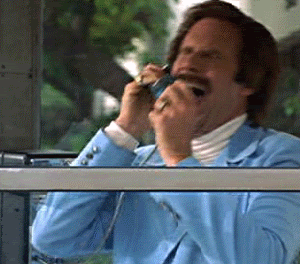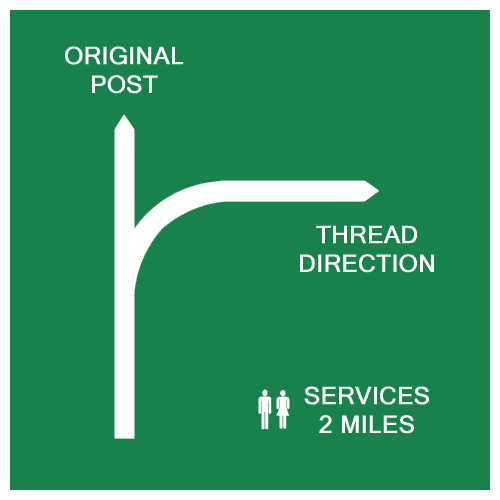Warning: long post ahead!
Okay, here’s my attempt at explaining why I really really didn't like Iron Man 3.
I should preface this with a disclaimer: I had never seen the first two Iron Man movies. I had of course seen The Avengers, which I really liked, so that was the extent of my knowledge of the character.
I feel like there was a good movie inside this one, just screaming to get out. I don’t know what the writing process was or how many script reviews it went through, but I feel like the original concept was (or should’ve been) an exploration of Tony’s awareness of his own mortality, and the question of whether the suit is the hero, or is the man inside it? (Which was somewhat done in the film, but pretty clumsily.) Here’s how it felt to me like it could’ve played out:
- Tony is traumatized by the events of The Avengers – in which he almost died (had to face his own mortality)
- He can’t sleep, so he spends a lot of time making a suit that he doesn’t need to be inside.
- Then because of his fear of his mortality, he lets the suit do the work. But he doesn’t tell anyone…he tries to make it look as though he’s still inside the suit (still the hero, putting himself on the line).
- Considering he almost fell from a great height to his death in the Avengers, the sky diving scene would’ve scared the crap out of him – right? Can’t help thinking that’d be the major time to have a panic attack. So he uses the remote control suit instead. He lands the people in the water, they cheer, he flies up onto the bridge and gets hit by a truck – and it’s revealed that he’s not in the suit.
- Now people know that he’s not in the suit. The question is raised – if he lets the suit do all the work, is he still a hero? Does it make him less heroic to not be putting himself on the line? Is it fair to expect him to?
- This is where the storyline with the little boy could’ve come into effect – the little boy being the audience’s touchstone for feeling betrayed and Tony’s guilt (which he’s trying to suppress / avoid)
- But Tony does doubt himself, the villains prey on that, and then Pepper gets kidnapped and the remote control suit breaks down and Tony HAS to get back inside the (original) Iron Man suit to save the day. He has to make that conscious decision to BECOME the hero, to put HIMSELF on the line, to save the day.
- And he does, and then he decides that he is not prepared to do that, that he is willing to relinquish his fame and the admiration of others to keep himself safe, and so he gets the thing taken out of his chest etc etc as happens at the end of the movie.
That’s my take on it. I would be really interested to read earlier drafts of the script, because this version makes the hero not overly ‘heroic’ so I can imagine that studios may have baulked at it, and little things like random panic attacks were all that were left in the end product…
There have been quite a few comments made already about the PTSD and I want to respond to some of them:
Doctor Submarine wrote:Tony's anxiety attacks were fascinating, and a fantastic addition to the movie. It's a superhero sequel where the hero has PTSD from the final battle of the last movie. That's brilliant. And to say that they had no bearing on anything? Did we watch the same movie? Tony's entire character arc was fueled by them. He's afraid to be outside of his suit. He's become too dependent on his suit. He has a psychological obsession with the suits. But by the end of the movie, he realizes that he doesn't need the suit, because he's the real hero. The suit is just a tool. That's the whole point of him jumping in and out of them in the finale. Iron Man is in the title, but Tony Stark is the superhero.
I agree that this is what they were going for. I don’t think they succeeded. Panic attacks are not something that you have for a minute and then get up and walk away from. Robert Downey Jr acted them superbly, no quibbles there, but while the PTSD made complete sense to me, his easy recovery from them made absolutely none. They only debilitated him for seconds at a time.
Doctor Submarine wrote:And I loved Pepper saving Tony at the end. It calls back to her covering him during the attack on his mansion. It gives their relationship a dynamic that no superhero movie (save The Incredibles) has had before.
Maybe, but she wasn’t really in control of those powers. And the feminist in me took mild offence at his later assertion that he “fixed her”. (Yes, I’m aware that I just contradicted myself…)
Jimmy B wrote:I totally buy that a traumatised Tony made all those other suits in order to try to get over his ordeal in New York.
I do too, I just think he should’ve only made one, and had an arc as outlined at the start of my post. It was never really made clear that his reason for making other suits was because he didn’t want to be inside the suit anymore (if that’s even the point the movie was trying to make).
fireproof78 wrote:So, I think in 3 (and bear in mind I haven't seen it but have gathered enough from this thread to make a preliminary diagnosis ) he is literally going from dependent on the suit to not needing the suit but still calling himself "Iron Man" because he feels that what makes Iron Man special is himself, not the suit.
In theory yes, that's what they were going for. But the movie fails to make him EARN that. In my opinion.
And before I go, I also want to add that I found all of the scenes with the Mandarin being a scary Middle Eastern terrorist incredibly offensive. Whether or not the Mandarin was a “real” threat or not… The scene in Pakistan when “Iron Patriot” shows up and threatens to shoot a group of men and then gets on his phone and chats to Tony while the Pakistani men just stand there, apparently eavesdropping and laughing at his conversation… NO. Just no. How dare you, movie? And the women working in the factory – “You’re free, if you weren’t before.” SHUT UP MOVIE. I had such MAJOR issues with all of that. The implication that Americans can just fly around the world, spreading their democracy and fixing the world… the arrogance of it all horrified me. Sure, the political allegory in Star Trek: Into Darkness was pretty heavy-handed, but at least it was asking people to look at themselves critically and decide where their morals lie, and what level they are prepared to stoop to in the pursuit of those who threaten them.
(And yes, I’m well aware that I don’t live in a country that has been directly affected by threats of terrorism, and perhaps my opinion would be different if I did, but that doesn’t stop me from having the opinions that I have.)





















